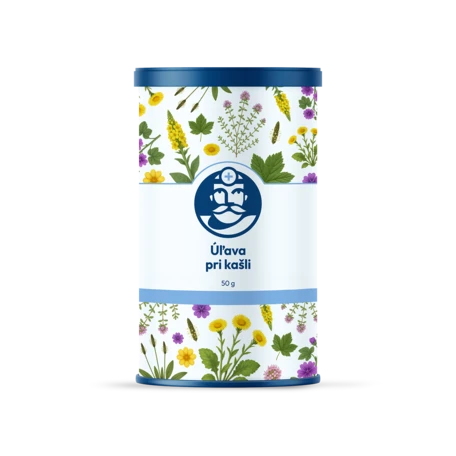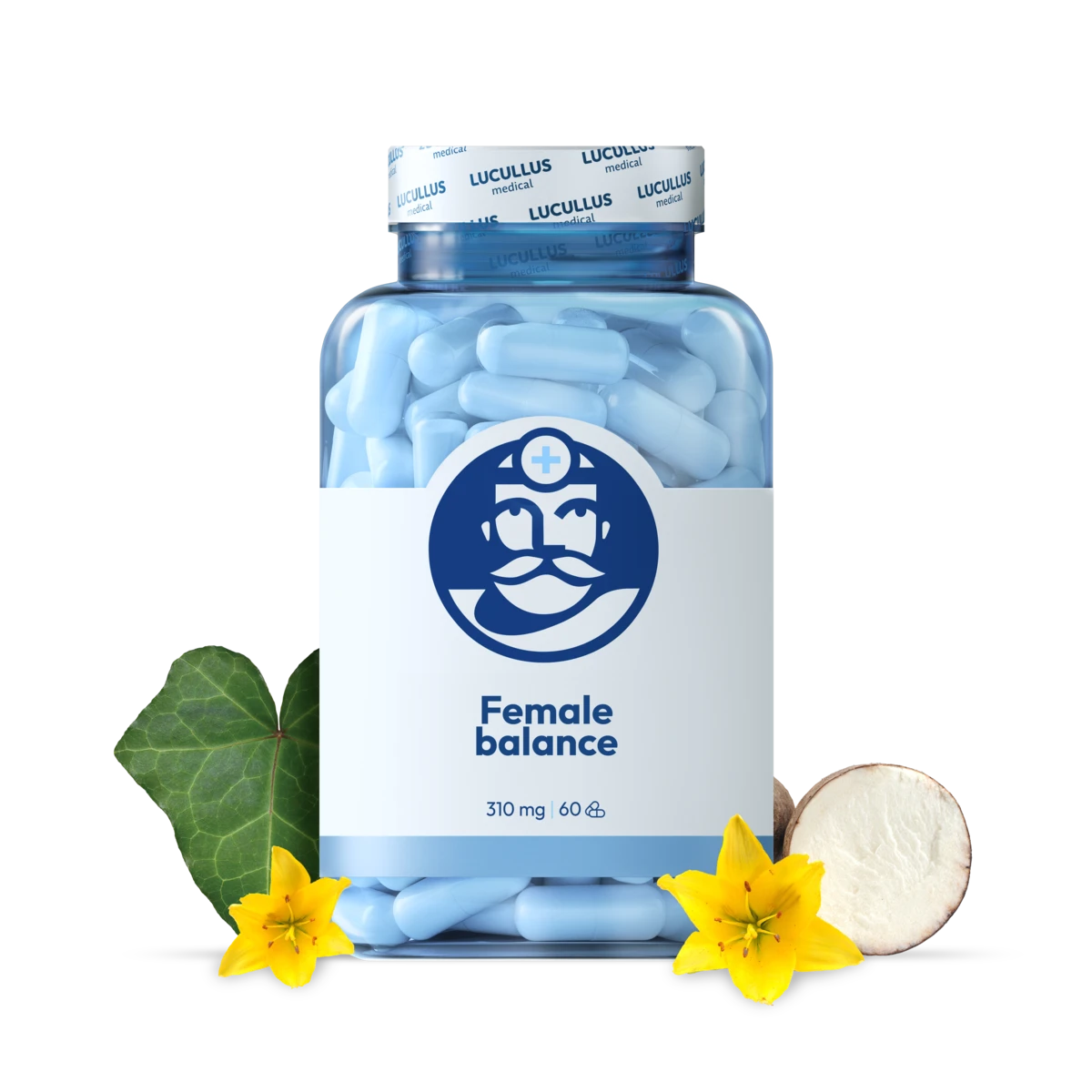Description
Harmonisation and natural comfort throughout the month with the Female Balance supplement
The female body reacts to fluctuations more sensitively than it may seem – whether it is the menstrual cycle, menopause or periods of increased stress. Irregular cycles, tension or mood swings can affect daily functioning and vitality. Women's Balance is a nutritional supplement designed to support inner harmony and natural female comfort in everyday life.
Key benefits
- Harmonious female comfort – Dioscorea villosa extract complements daily care for the female body. It promotes a pleasant physical state and makes it easier to cope with periods of hormonal changes.
- A calmer mind and emotional balance – plant substances soften emotional swings, promote calmness, relaxation and a pleasant mental state.
- Support for energy and vitality – the ingredients in the supplement contribute to normal energy metabolism, which helps to use energy more efficiently and contributes to a feeling of lightness and freshness throughout the day.
- Strengthening the body's natural processes – plant extracts gently support metabolic functions that play an important role in the overall physiological balance of the body.
- More comfortable management of women's days – wild yam is traditionally used during cyclical changes. It contributes to physical and emotional comfort and improves the overall experience during women's days.
Composition and effects
- Wild Yam (Dioscorea villosa) Root extract, standardised to 20% diosgenin (300 mg extract). Supports female comfort, cycle regularity and pleasant physical condition. Diosgenin is a plant steroid saponin naturally occurring in this plant and is responsible for its functional properties.
Why it works – scientific rationale
Dioscorea villosa is an important plant source of diosgenin, a bioactive substance long associated with supporting the female body. Its saponins act gently but effectively, supporting metabolic processes that are key to vitality, energy and overall physiological balance. This helps the body to be better prepared to cope with periods of cyclical change.
In traditional female phytotherapy, wild yam has gained a firm place mainly for its ability to relieve the unpleasant sensations associated with the menstrual cycle and to support comfort during menopause. It acts as a stabilising element that helps harmonise a woman's physical and emotional state.
The plant also contains accompanying phytochemicals – dioscin, phytosterols, amino acids, alkaloids and tannins – which naturally work with diosgenin to optimise the body's responses and support the regulation of inflammatory processes.
Modern processing of the plant allows the active ingredients to be preserved in a precise and controlled form. Standardisation to a defined amount of diosgenin ensures consistent quality and effect in each dose. Thanks to the combination of traditional knowledge and modern extraction, Wild Yam provides reliable support for female comfort, metabolic balance and overall well-being. Its effect is natural, gradual and fits harmoniously into the rhythm of the female body.
Recommended use and production quality
Take 1 capsule daily with food and drink plenty of water. The supplement is manufactured under controlled conditions, free of allergens, GMOs and artificial colours. Each batch undergoes laboratory testing for purity and quality.
Feel balanced, harmonious and natural in your body. Treat yourself to a balance that will remind you of the power and uniqueness of the female body every day.
V naturálnom doplnku je ukrytá menej známa rastlina diskórea huňatá ( Discorea villosa, Wild yam) z čeľade Dioscoreaceae. Poďme sa s ňou zoznámiť ☺ Existuje viac ako 600 druhov rastlín yam, najvýraznejší druh je divoký yam (Dioscorea villosa). Táto trvá nenáročná liana (vinič) rovníkových oblastí, má listy v tvare srdca. V listoch a koreňoch je prítomný diosgenín (primárna zložka), práve koreň sa používa v medicíne aj v našich doplnkoch, ako koncentrovaný extrakt (najvyššia výťažnosť), štruktúra je podobný cholesterol. Táto látka sa používala na výrobu prvých antikoncepčných podkladov.
Zobraziť viac






























